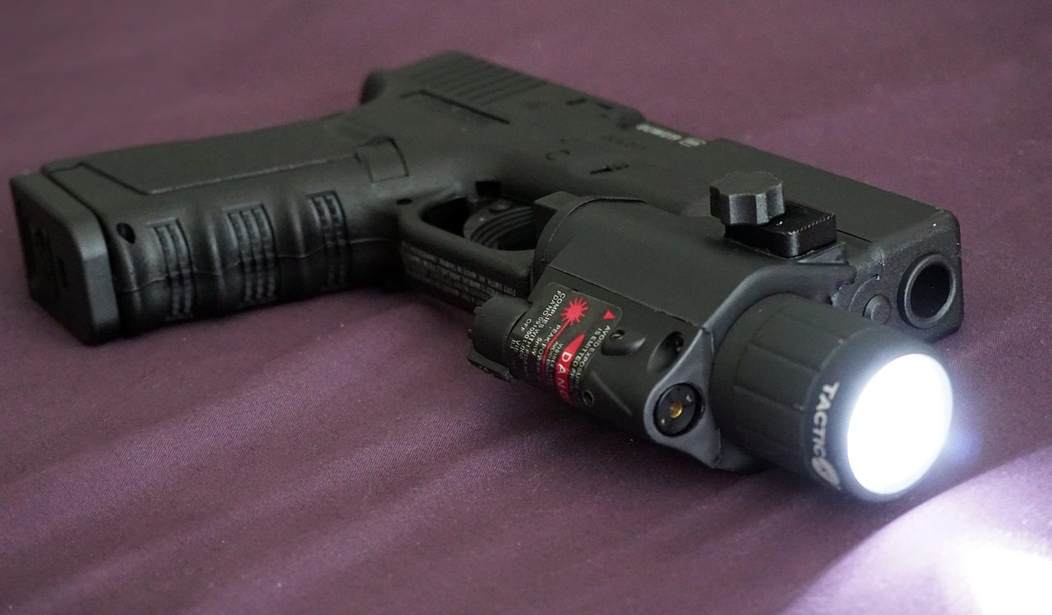Does your right to keep and bear arms disappear when you live in public or subsidized housing? According to a unanimous decision by a three-judge panel on the Tennessee Court of Appeals, the answer is a clear and unambiguous “no.”
The decision is the latest chapter in a saga that dates back to 2018, when a man named Kinsley Braden signed a lease agreement with the Columbia Housing & Redevelopment Corporation. The corporation provides subsidized housing for the city of Columbia, but one of its provisions mandated that residents not possess firearms in their homes. When the company found out that Braden had been keeping a pistol on the premises, it sought to evict him in 2020, and Braden sued over the gun ban. A trial court judge found in favor of the CHRC, but on Thursday the appellate court found that even though Braden had signed the lease agreement, the company was in essence forcing him to sign away his constitutional rights; something that “governmental entities” cannot do. From the opinion (citations ommitted):
Significantly, the landlord is a governmental entity “acting as a landlord of property that it owns.” As such, its actions must comply with the Constitution, and the unconstitutional conditions doctrine “prevent[s] the government from coercing people into giving” up constitutional rights.
Although laws “forbidding the carrying of firearms in sensitive places such as schools and government buildings” do not violate the Second Amendment, not “all places of public congregation” are “sensitive places.” Moreover, although public housing is government-owned, the leased premises at issue is the tenant’s private home, which is not the kind of “sensitive place” where the government may categorically ban firearm possession. Further, complete prohibitions on possession of handguns in the home for self-defense are “historically unprecedented.”
Therefore, we hold that Columbia Housing’s prohibition against handguns in the tenant’s “home” is an unconstitutional lease condition. As a consequence, the tenant’s possession of a handgun in his apartment, his home, did not constitute a breach of the lease agreement.
Accordingly, the judgment of the circuit court is reversed, and this matter is remanded for further proceedings consistent with this opinion.
Alan Gottlieb of the Second Amendment Foundation, which supported Braden in the lawsuit, said he was “delighted” with the decision, noting “rulings like this make it clear the Second Amendment means what it says” and calling it “another victory in our mission to win firearms freedom one lawsuit at a time.”
While the Supreme Court hasn’t weighed in on a gun ban in public housing, the issue has popped up in several states over the past decade and the bans have never fared well, even before the Bruen decision was handed down. In 2014 the Delaware State Supreme Court ruled that residents of public housing still possess the right to keep and bear arms for self-defense, and in 2019 a federal judge threw out a similar ban on firearms in public housing imposed by the East St. Louis Housing Authority:
In a case brought against the East St. Louis Housing Authority (ESLHA), a Public Housing resident claimed that ESLHA’s restriction against tenants having firearms in their units violated her Second Amendment rights. The case was brought by the Second Amendment Foundation and the Illinois State Rifle Association on behalf of the resident.
Listed in court documents as N. Doe, she cited the need to have a gun for safety and self-defense. She had been abused by her ex-husband while he was on parole after serving time for murder. He had also threatened to kill her and her children. She had also been sexually assaulted in her home by a family acquaintance. The assault was halted when one of her children confronted the attacker with her gun. Doe’s weapon was properly registered. She had received training and education in the safe use of firearms and held a valid Illinois Firearms Owner ID card.
ESLHA’s Public Housing lease contained a clause banning possession of firearms. The lease clause stated that, “residents are not to display, use or possess or allow members of (Doe’s) household or guest to display, use or possess any firearms (operable or inoperable)…anywhere on the property of the authority.” Violation of this clause could result in the housing authority terminating the lease. Doe had come to Public Housing after health issues in her family had brought them on hard times. She feared for losing her affordable housing unit because of her possession of the gun.
The suit contends that the ban discriminates against poor people, denying them the same right to bear arms that is enjoyed by those who can afford private housing. District Court Judge Phil Gilbert ruled that ESLHA cannot deny, through rules or regulations, a tenant’s right to lawfully own a firearm. Judge Gilbert said that, “Among whatever else, the Second Amendment protects the rights of a law-abiding individual to possess functional firearms in his or her home for lawful purposes, most notably for self-defense and defense of family.”
The legal issues are a little trickier when it comes to private landlords banning tenants from possessing guns in their home or apartment (in fact Tennessee law expressly allows landlords in the private sector to do so), but it shouldn’t be a difficult decision to find that government-owned or subsidized housing cannot prohibit lawful gun ownership as a condition of tenancy. The government can’t infringe on the right to keep and bear arms, and it doesn’t get more infringe-y than banning a right completely. We’ll see if the housing authority ends up appealing this decision to the Tennessee Supreme Court, but if they do I don’t expect the justices to go along with their anti-rights argument.








Join the conversation as a VIP Member